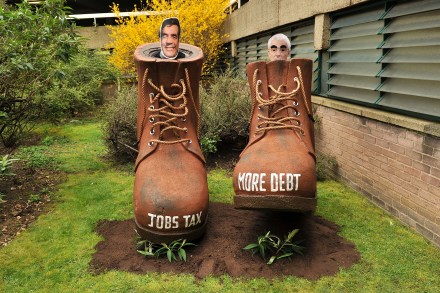Europe as a campaign message … for Labour
As I said earlier, today’s PMQs was all about giving the various parties’ campaign messages a walk around the block. Cameron’s questions reduced down to “They’ve failed – give us a go”. Clegg pushed the Lib Dem’s Labservative prospectus. And Brown droned on about “£6bn being taken out of the economy,” as well as about Lord Ashcroft and “securing the recovery”. In which case, it’s striking that Denis MacShane used a question to denounce the Tories’ alliances in Europe. Indeed, Peter Mandelson did exactly the same in a speech this morning. Here’s how he put it: “David Cameron chooses to sit alongside the xenophobes and homophobes in the European Parliament.
















